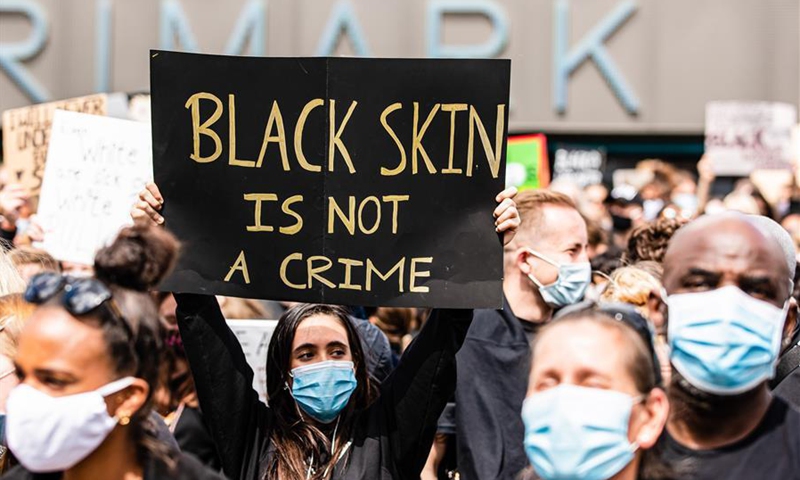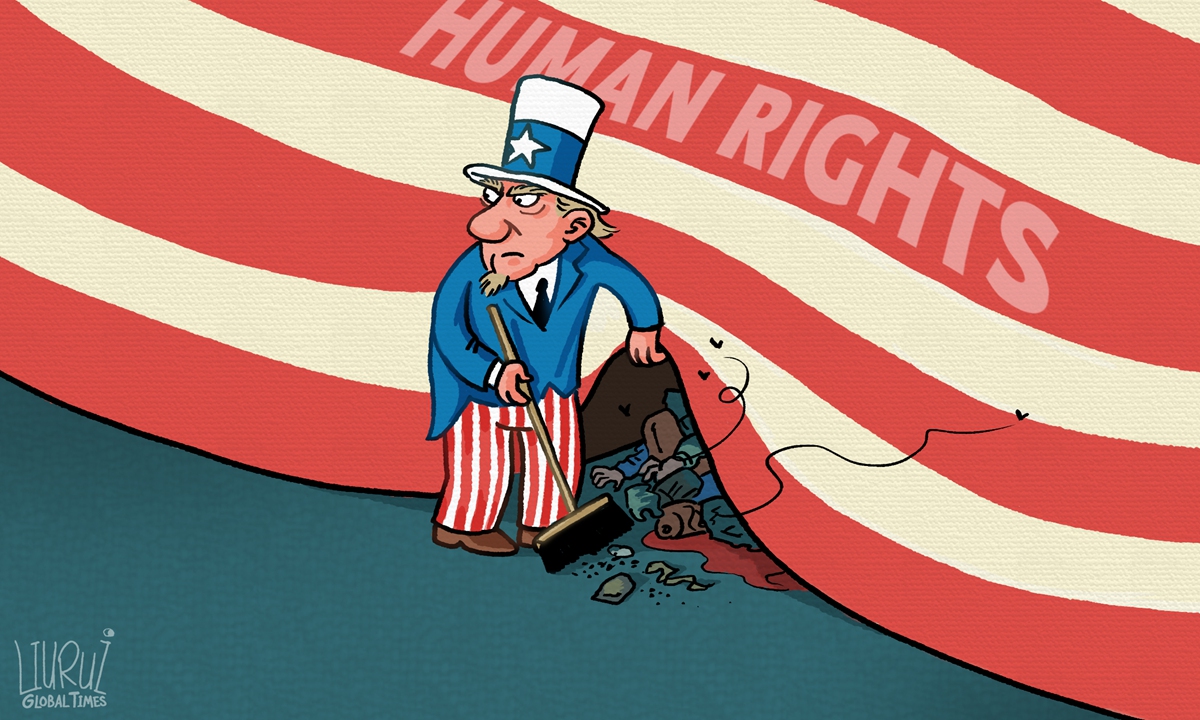

Left vs right: intensified social confrontation in the US
Conflicts between the left-wing and right-wing activists in
the US have intensified in recent years. Expert warned that the two
ideologies could undoubtedly intensify social confrontation amid
pandemic, riots the 2020 US presidential election.
 |
| Protesters hold up their phones during a demonstration over the death of George Floyd, outside the White House on Wednesday in Washington, DC. Photo: AFP |
Washington Post published an article on Wednesday titled "CIA veterans who monitored crackdowns abroad see troubling parallels in Trump's handling of protests", in which current and former US intelligence officials pointed out the similarity between the events in the US and the signs of decline or democratic regression they were trained to detect in other nations. Likewise, former CIA officer Marc Polymeropoulos tweeted on Tuesday that "It reminded me of what I reported on for years in the third world."
In many cases, the so-called democratic regression in other nations and the third world was caused by the US intervention. Again, the US has shot itself in the foot.
The spreading unrest in the US shows that the US political system is not immune to social instability. Many people are using the hashtag #AmericanSpring on Twitter, comparing the social movement Arab Spring with the violent protests triggered by the death of George Floyd.
Some have also raised the question: Is a color revolution taking place in the US?
The US government manipulated color revolutions in some Central Asian and Eastern European countries from the 1980s. It has also tried to provoke color revolutions in many more places, including China's Hong Kong Special Administrative Region. Washington has created instability in and around many countries it considers geopolitical opponents.
Under the disguise of protecting democracy, liberty and human rights, the US government aims at subverting opponents and shaping international environment in favor of US strategic interests. The subversion plots, often carried out by CIA, left many countries struggling in a chaotic situation for a long period of time.
And now, the US' wanton destruction of social order in other countries has backfired and put itself in a moral dilemma.
Facing unabated protests, American political elites are now debating how to put the spreading chaos to an end, whether the police should get tough and whether troops should be deployed to stabilize the situation.
The importance of maintaining order and stability is laid bare as Washington is struggling to deal with the angry masses. The chaos in the US shows that simply shouting slogans of democracy and freedom will never work.
By trying to manipulate other countries' affairs, Washington is harming others as well as itself. As the US still provokes instability worldwide, other countries need to insist that the US should not meddle in their internal affairs.
Source link
RELATED ARTICLES:
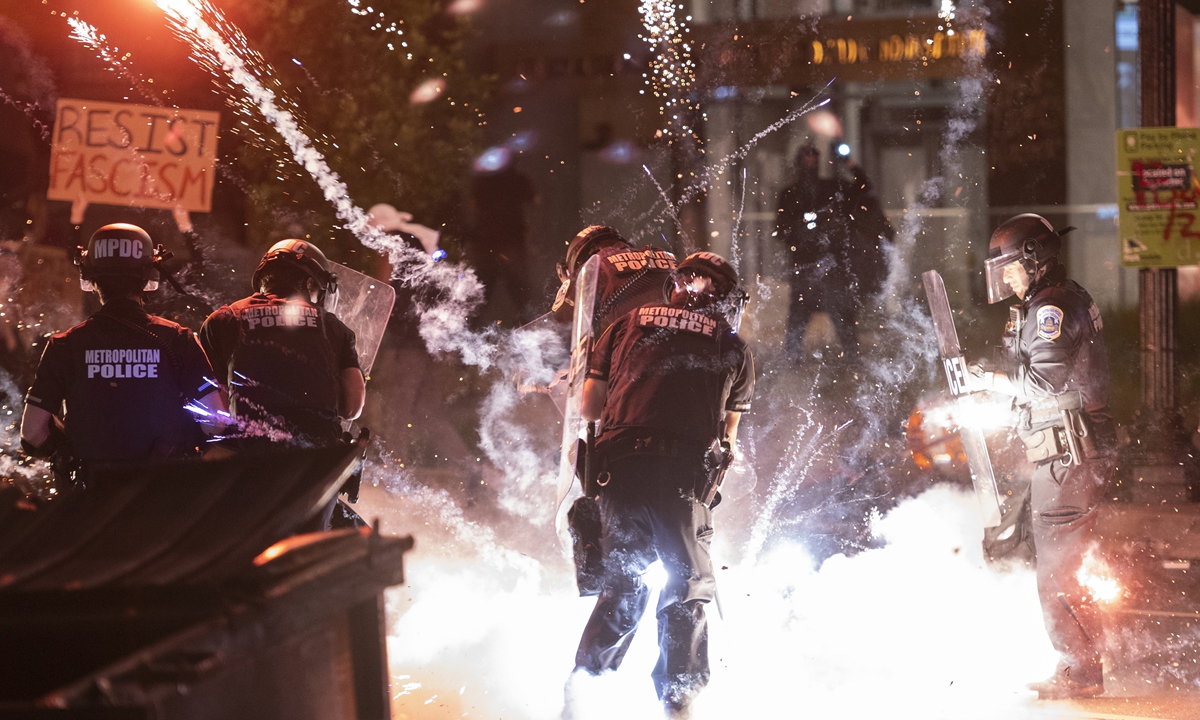
Protesters march across US
Tens of thousands of peaceful protesters rallied for racial justice Saturday in cities across the United States following the death of George Floyd, as the movement triggered by his killing at police hands entered a second weekend.
Read More:
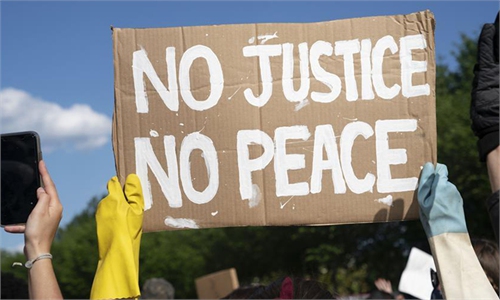 US needs to reflect on its social and economic discrimination
US needs to reflect on its social and economic discrimination
Anti-racism sentiment has swept across the US following
the death of George Floyd. Protests have led to nationwide unrest, with
people burning police stations, smashing store windows and destroying
public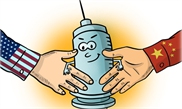
Facing coronavirus scourge, US must put aside animosity
The novel coronavirus continues to churn the world by crushing public health systems and decimating thousands of lives each passing day. As the world's two most resourceful economies, the US and China should join hands in working out better therapeutics and speed up vaccine testing and development.
US must provide accurate COVID-19 information
Lacking transparency and an efficient response to the spread of novel coronavirus pneumonia (COVID-19), the US government has blinded global markets. Amid an epidemic that is sprawling worldwide, certainty is what the world needs most.
Related Posts:
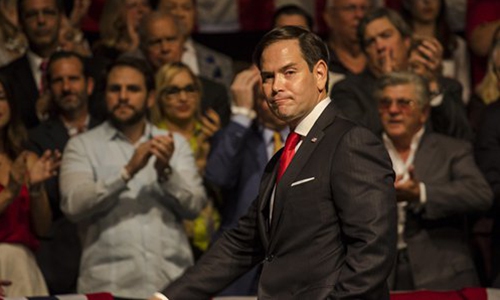
Source: Global Times | 2020/6/6 19:02:53
https://youtu.be/5pgEpUm7RBI

Modern-day "Eight-Nation Alliance" reflects West's anxiety about China's rise
By forming the so-called IPAC, these legislators will only humiliate themselves. 120 years have passed, and as the second largest economy worldwide, China and its people will not let the shame of the year 1900 be repeated again on its territory.Source: Global Times | 2020/6/6 19:02:53

